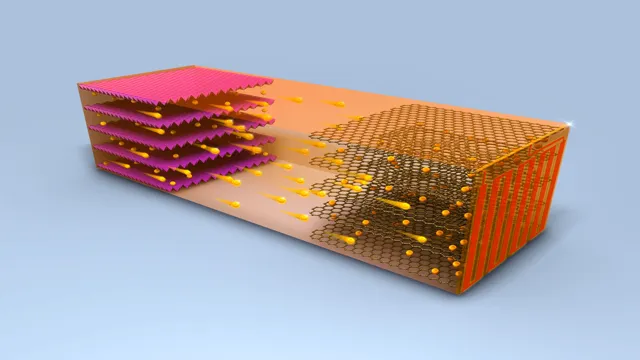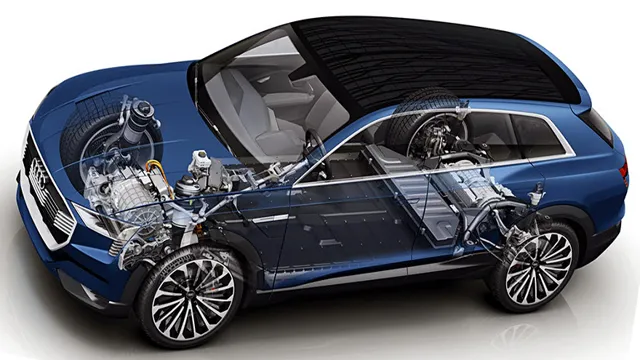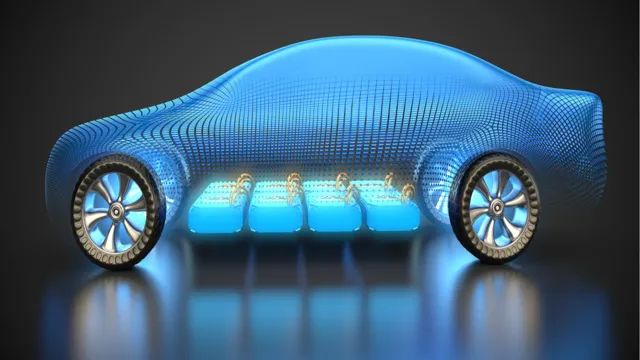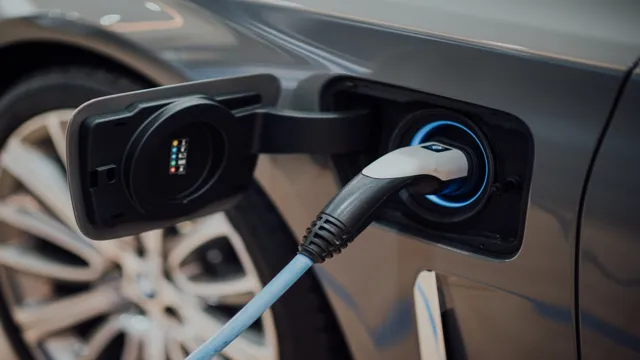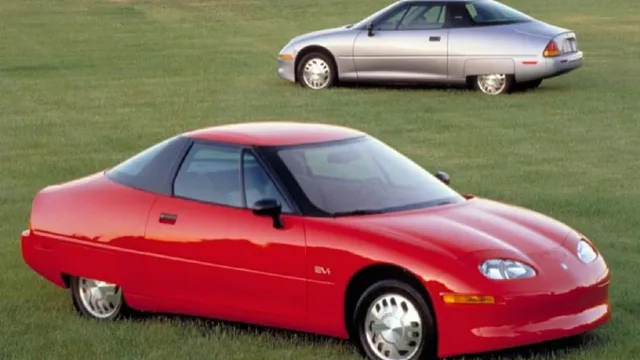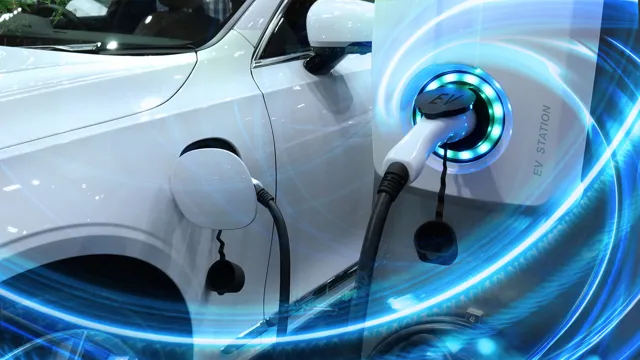Revolutionizing the Road: The Latest Advancements in Electric Car Battery Technology
Electric cars are becoming increasingly popular as concerns about the environment and gas prices continue to grow. However, one of the biggest challenges facing the electric car industry has been the performance of their batteries. Electric car batteries have historically been expensive, heavy, and have limited driving ranges.
Fortunately, new technologies are being developed that could revolutionize the electric car industry. These new tech electric car batteries could significantly increase driving ranges, reduce charging times, and potentially lower costs. Some of the leading innovations in this field include solid-state batteries, lithium-sulfur batteries, and sodium-ion batteries.
Solid-state batteries, for instance, use solid electrolytes instead of liquid ones, making them less flammable and more lightweight. Meanwhile, lithium-sulfur batteries have the potential to store almost twice as much energy as traditional lithium-ion batteries. These developments in new tech electric car batteries are exciting because they could significantly improve the driving experience of electric cars while also making them more accessible to the general public.
With these new technologies, there is the potential to eliminate the range anxiety that many have associated with electric cars, making them more practical for long-distance driving. Ultimately, the progress being made in new tech electric car batteries means that electric cars are not only the environmentally responsible choice but could soon become the most convenient and cost-effective option as well. As we continue to see developments in this field, it’s exciting to imagine the future of transportation where electric cars are the norm, and traditional gas-powered vehicles are a thing of the past.
Benefits of the Latest Battery Technology
New technology electric car batteries offer a range of benefits that make driving an electric car more efficient and enjoyable. Firstly, the latest batteries offer longer ranges, allowing drivers to travel further without needing to recharge. Secondly, they are faster to recharge, taking less time to get back on the road.
Thirdly, modern electric car batteries have a much longer lifespan, reducing the need for replacement, reducing waste and providing savings in the long run. Additionally, new technology battery cells are made from sustainable materials that have a lower environmental impact, an important criterion in today’s growing ecological concerns. Ultimately, the latest advancements in electric car battery technology are making electric vehicles a more reliable and sustainable mode of transportation, while also reducing the cost of ownership.
For this reason, new technology electric car batteries are an exciting development that is attracting attention from the public and industry professionals alike.
Increased Range and Performance
The latest advancements in battery technology have led to increased range and better performance in electric vehicles. With the use of lithium-ion batteries, electric cars can now go farther distances and provide higher levels of torque. These batteries are not only efficient but are also light-weight and take up less space, making them ideal for use in cars.
This translates to a better driving experience, as EVs can now accelerate faster and climb hills with ease. Furthermore, the newer batteries offer a longer lifespan, reducing the need for replacements and maintenance costs. In addition to that, they are also more environmentally friendly, producing fewer emissions and pollution.
It’s no surprise why the impressive benefits of the latest battery technology have ignited a spark in the EV industry. There is now a greater push towards the development of better, faster, and more reliable batteries. As a consumer, you can now enjoy longer drives without worrying about running out of battery or being stranded on the road.
With EVs powered by these innovative batteries, the possibilities for the future are endless.
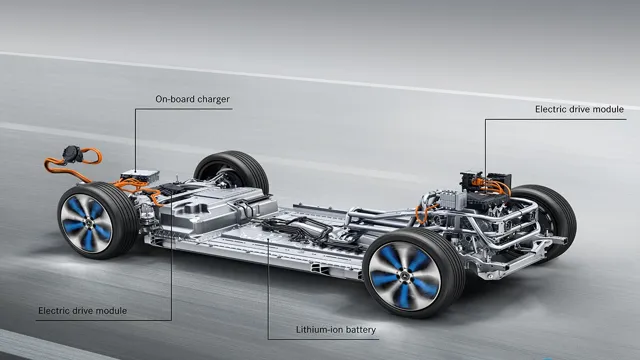
Reduced Charging Time
The latest battery technology comes packed with a host of benefits, and one of the most significant advantages is the reduced charging time. With conventional batteries, you might have to wait hours before you could use your phone again. However, the latest batteries can be charged in a fraction of that time, allowing you to use your device for longer durations without worrying about battery life.
This technological advancement has been made possible with the use of advanced materials such as lithium-ion and solid-state batteries, which have significantly higher energy densities and faster charging capabilities. So whether you’re on the go or just have a busy day ahead, the latest battery technology ensures that you stay connected and productive.
Improved Safety Standards
One of the significant benefits of the latest battery technology is improved safety standards. With new developments like solid-state batteries, which use a solid electrolyte instead of a liquid one, the risk of thermal runaway and explosion is significantly reduced. Solid-state batteries are more stable and less prone to leakage, making them safer for use in electric vehicles and other applications.
Moreover, advances in battery management systems (BMS) enable more precise monitoring of battery health and performance, minimizing the risk of overcharging and overheating. As a result, not only do these next-generation batteries provide longer range and faster charging times, but they also offer greater reliability and safety. It’s like upgrading from an old gas stove to an induction cooktop.
You get faster and more precise cooking without the risk of gas leaks or fires. Therefore, the latest battery technology, especially solid-state batteries with advanced BMS, have enormous potential to revolutionize the energy industry, providing clean, safe, and efficient power for generations to come.
Different Types of Electric Car Batteries
Electric cars are becoming more popular as people look for alternatives to traditional gasoline-powered vehicles. One major factor in the development of electric cars is the technology behind the batteries that power them. New technology electric car batteries come in a variety of different types, each with its own advantages and disadvantages.
Some use lithium-ion technology, which is currently the most popular, while others use newer technologies like solid-state batteries. Lithium-ion batteries are lightweight and have a high energy density, allowing them to store a lot of energy in a small amount of space. However, they can be expensive and have a relatively short lifespan.
Solid-state batteries are still in development, but they have the potential to be even more efficient and long-lasting than lithium-ion batteries. As with any new technology, there are still questions to be answered about how effective these new batteries will be in real-world use. However, the development of new technology electric car batteries is an exciting field that holds a lot of promise for the future of sustainable transportation.
Lithium-Ion Batteries
Lithium-Ion Batteries When it comes to electric car batteries, there are several types to choose from. One of the most common types is the lithium-ion battery, which has gained popularity due to its high energy density and long lifespan. Lithium-ion batteries are made up of two electrodes, one positive and one negative, with a separator in between.
When the battery is charged, lithium ions move from the positive electrode to the negative electrode, and vice versa when it is discharged. There are several different types of lithium-ion batteries, including cylindrical, prismatic, and pouch cells. Each type has its own advantages and disadvantages, such as size, weight, and cost.
Despite these differences, they all offer a high level of performance and reliability. This is why lithium-ion batteries are the preferred choice for most electric cars on the market today. They provide a good balance of cost, performance, and reliability, making them a practical and efficient choice for eco-conscious drivers.
Solid State Batteries
Solid State Batteries Electric cars are powered by a battery, and the type of battery used can greatly affect the car’s performance. One type of battery that is becoming increasingly popular is the solid-state battery. Unlike traditional lithium-ion batteries, solid-state batteries use a solid electrolyte instead of a liquid one.
This makes them safer, more efficient, and longer-lasting. Solid-state batteries also have the potential to store more energy and charge faster than other types of batteries, making them an attractive option for electric car manufacturers. While still in the development stage, solid-state batteries are poised to revolutionize the electric car industry and provide consumers with a safer and more sustainable mode of transportation.
Flow Batteries
Electric car batteries have come a long way in recent years and there are many different types available. One type that is gaining popularity is flow batteries. These batteries use two liquids, which are usually stored in separate tanks and pumped through a cell when electricity is needed.
One liquid contains the positive electrode and the other contains the negative electrode. The great thing about flow batteries is that they are rechargeable and can be recharged simply by replacing the used liquids with fresh ones. They are also very durable and can last for many years without needing to be replaced.
This makes them an attractive option for electric car manufacturers, who are always on the lookout for new and improved battery technologies.
Future of Electric Car Batteries
New technology electric car batteries are set to revolutionize the automotive industry. Companies worldwide are investing heavily in research and development to improve the performance and efficiency of electric car batteries. One promising technology is the solid-state battery, which uses a solid electrolyte instead of the liquid ones used in conventional batteries.
Solid-state batteries have the potential to offer faster charging times, longer range, and increased safety, as they are less prone to overheating and fires. Another breakthrough technology is the lithium-sulfur battery, which has a higher energy density than traditional lithium-ion batteries and could extend the range of electric cars significantly. Additionally, companies are exploring the use of recyclable or biodegradable materials in battery production, making electric vehicles more environmentally friendly in the long run.
As technology advances, the electric car battery is becoming smaller, cheaper, and more efficient, which is paving the way for the widespread adoption of electric vehicles in the coming years.
Continued Research and Development
The future of electric car batteries is an exciting topic that’s currently at the forefront of the automotive industry. Electric vehicles are rapidly gaining popularity, and battery technology is evolving at an incredible pace to meet the rising demand. Manufacturers are focusing on research and development to create lithium-ion batteries that are more efficient, cost-effective, and long-lasting.
Scientists are experimenting with different materials, such as silicon and aluminum, to increase the energy density of the batteries, while reducing their weight and size. Many companies are also exploring solid-state batteries, which offer higher energy density and greater safety than traditional lithium-ion batteries. These developments are promising, and they could lead to even more affordable and reliable electric vehicles in the future.
With the demand for electric cars expected to grow exponentially in the coming years, the race to develop better batteries is well and truly on.
Integration with Renewable Energy Sources
The future of electric car batteries looks bright as the integration with renewable energy sources becomes more prevalent. This means that electric cars will not only be more environmentally friendly but also more sustainable in terms of energy production. Integrating with renewable energy sources like solar panels or wind turbines means that electric car batteries can be charged with clean energy, reducing the carbon footprint even further.
Plus, by using renewable energy sources to power electric cars, it reduces our dependency on fossil fuels, creating a more sustainable future for transportation. Think of it like planting a tree that will eventually bear fruit – by investing in renewable energy sources now, we are paving the way for a more sustainable future for generations to come. Overall, the integration of electric car batteries with renewable energy sources is an exciting development that promises to make a significant impact on the automotive industry and beyond.
Conclusion
In conclusion, the development of new technology electric car batteries is a game-changer for the automotive industry. With longer range and faster charging times, electric vehicles are becoming a more viable option for consumers. As we continue to push the boundaries of battery technology, the possibilities for the future of electric vehicles are endless.
So, let’s strap on our seatbelts and get ready for an electrifying ride into the future of transportation!”
FAQs
What is the new technology used in electric car batteries?
The new technology used in electric car batteries is called solid-state batteries, which replace the traditional liquid electrolyte with a solid material.
How do solid-state batteries differ from traditional lithium-ion batteries?
Solid-state batteries differ from traditional lithium-ion batteries in that they use a solid electrolyte instead of a liquid one, making them safer, more efficient, and able to store more energy in the same amount of space.
What are the advantages of using solid-state batteries in electric cars?
The advantages of using solid-state batteries in electric cars are that they are safer, have a longer lifespan, can store more energy, are more efficient, and can withstand extreme temperatures.
Are there any downsides to using solid-state batteries in electric cars?
One downside of using solid-state batteries in electric cars is that they are currently more expensive to produce than traditional lithium-ion batteries. Additionally, there are still some technical challenges to overcome before solid-state batteries can be mass-produced for vehicles.
